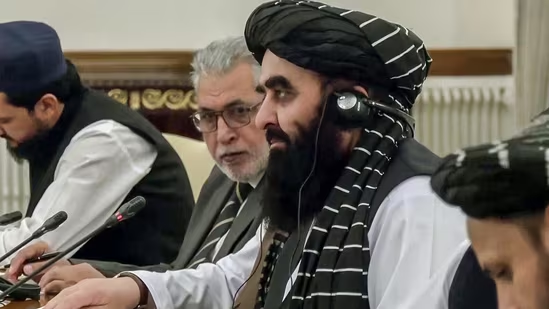In a significant diplomatic development, India is reportedly preparing to move forward in re-establishing full diplomatic engagement with Afghanistan under Taliban rule — four years after the groupAn Embassy Move As India, Taliban Reset Ties 4 Years After Takeover
In a significant diplomatic development, India is reportedly preparing to move forward in re-establishing full diplomatic engagement with Afghanistan under Taliban rule — four years after the group’s return to power in Kabul.
According to government sources, discussions are underway to reopen the Indian Embassy in Kabul with a more active presence, signaling a cautious yet pragmatic reset in New Delhi’s approach towards the Taliban regime. India had evacuated its diplomats and temporarily shut down the embassy in August 2021 after the Taliban seized control of Afghanistan following the U.S. troop withdrawal.
Since then, India has maintained only limited engagement through its “technical team,” which was deployed in 2022 to oversee humanitarian assistance and assess security conditions. The recent deliberations mark a potential shift from a humanitarian-only framework to a broader political and economic engagement.
Officials familiar with the matter indicated that India’s move stems from both strategic and security calculations. Afghanistan remains crucial to India’s regional interests, particularly concerning trade connectivity through Central Asia and countering Pakistan’s growing influence in Kabul.
Sources also revealed that back-channel communications between Indian representatives and Taliban officials have intensified in recent months. The Taliban has reportedly assured India that its soil would not be used for anti-India terror activities — a major concern since the regime’s takeover.
India has been one of the few major regional powers to maintain a line of communication with the Taliban without officially recognizing its government. Humanitarian aid, including food grains, vaccines, and medical supplies, has continued from India to Afghanistan through UN and bilateral channels.
Analysts say reopening the embassy would allow India to better monitor on-ground developments, safeguard its aid projects, and facilitate contact with Afghan citizens, including those linked to India’s past reconstruction efforts.
While New Delhi remains cautious about granting formal recognition to the Taliban, the move to strengthen its diplomatic footprint in Kabul underscores a growing realism — that engagement, not isolation, is key to securing India’s long-term strategic interests in the region.
The coming weeks are expected to bring clarity on the modalities of this diplomatic re-engagement, marking what could be a turning point in India-Afghanistan relations since the Taliban’s 2021 takeover.
’s return to power in Kabul.
According to government sources, discussions are underway to reopen the Indian Embassy in Kabul with a more active presence, signaling a cautious yet pragmatic reset in New Delhi’s approach towards the Taliban regime. India had evacuated its diplomats and temporarily shut down the embassy in August 2021 after the Taliban seized control of Afghanistan following the U.S. troop withdrawal.
Since then, India has maintained only limited engagement through its “technical team,” which was deployed in 2022 to oversee humanitarian assistance and assess security conditions. The recent deliberations mark a potential shift from a humanitarian-only framework to a broader political and economic engagement.
Officials familiar with the matter indicated that India’s move stems from both strategic and security calculations. Afghanistan remains crucial to India’s regional interests, particularly concerning trade connectivity through Central Asia and countering Pakistan’s growing influence in Kabul.
Sources also revealed that back-channel communications between Indian representatives and Taliban officials have intensified in recent months. The Taliban has reportedly assured India that its soil would not be used for anti-India terror activities — a major concern since the regime’s takeover.
India has been one of the few major regional powers to maintain a line of communication with the Taliban without officially recognizing its government. Humanitarian aid, including food grains, vaccines, and medical supplies, has continued from India to Afghanistan through UN and bilateral channels.
Analysts say reopening the embassy would allow India to better monitor on-ground developments, safeguard its aid projects, and facilitate contact with Afghan citizens, including those linked to India’s past reconstruction efforts.
While New Delhi remains cautious about granting formal recognition to the Taliban, the move to strengthen its diplomatic footprint in Kabul underscores a growing realism — that engagement, not isolation, is key to securing India’s long-term strategic interests in the region.
The coming weeks are expected to bring clarity on the modalities of this diplomatic re-engagement, marking what could be a turning point in India-Afghanistan relations since the Taliban’s 2021 takeover.





